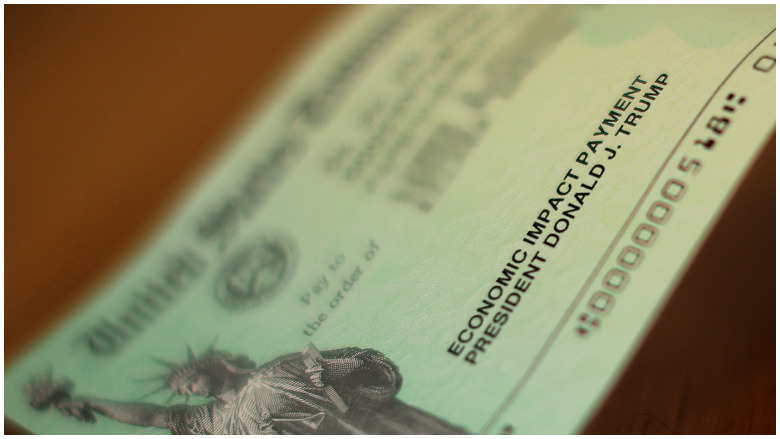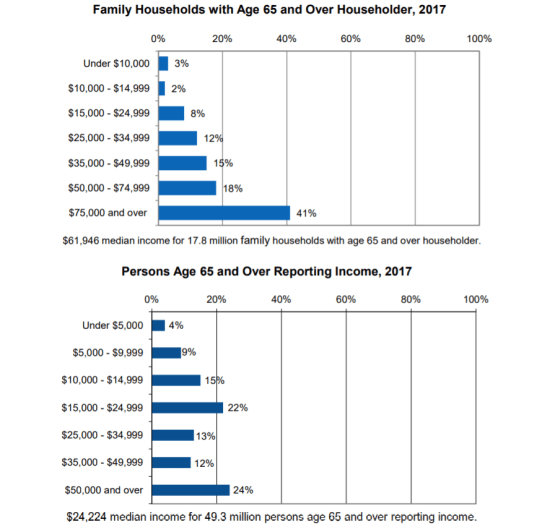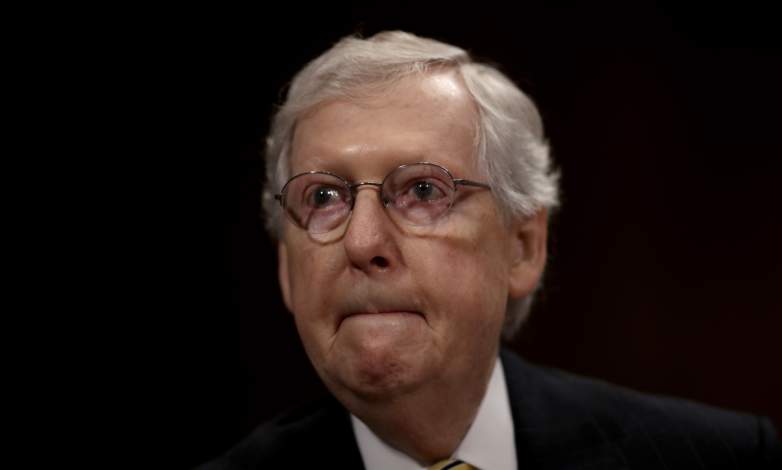
Getty What's the status on a second stimulus check?
As top Republican leaders make it clear that they are going to approve a second COVID-19 stimulus check for some Americans, some are wondering whether the new eligibility rules could exclude many seniors.
The question is whether older Americans would likely be over the income eligibility requirements that Republicans set.
What’s driving the concern about seniors are comments that Senate Majority Leader Mitch McConnell made earlier in the month, floating the idea of a $40,000 income cut off to get a second check. That’s under the amount earned by millions of senior citizens (and other Americans, for that matter). In comparison, the Democratic approved plan out of the U.S. House would have expanded eligibility to include more Americans than the first round of checks covered.
However, there’s good news for a lot of seniors this week.
On July 23, Treasury Secretary Steve Mnuchin revealed that the second stimulus checks will follow the same amount and eligibility rules as the first; that means millions of people will get another $1,200 check. The eligibility rules for the first round of checks specified that people earning less than $75,000 would qualify, with the checks being phased out up to $99,000 in income.
Here’s what you need to know:
The Republican Majority Leader Has Floated a Threshold That’s Less Than the Income in Many Elderly Households

On July 6, Washington Post reporter Jeff Stein wrote on Twitter, “Big news on stimulus checks today that GOP eyeing much lower phase-out for next round of payments Multiple sources say McConnell didn’t just throw out $40,000 as a cut-off haphazardly — consensus within GOP is moving that direction, which would sharply limit eligibility.”
The $40,000 figure was also mentioned by Federal Reserve Chairman Jerome Powell, who said in a speech in mid-May, “Since the pandemic arrived in force just two months ago, more than 20 million people have lost their jobs. A Fed survey being released tomorrow reflects findings similar to many others: Among people who were working in February, almost 40 percent of those in households making less than $40,000 a year had lost a job in March.1 This reversal of economic fortune has caused a level of pain that is hard to capture in words, as lives are upended amid great uncertainty about the future.”
In 2017, 59% of households with someone age 65 or older in them reported incomes of more than $49,000. That’s 17.8 million people. That same year, almost one quarter of people 65 or older reported income of more than $50,000. Another 12% reported income of between $35,000 and $49,999. The number of older Americans reporting income was 49.4 million people.
Thus, we’re talking about a lot of individuals being affected by the decisions on cut off.
“Households containing families headed by persons age 65 and over reported a median income in 2017 of $61,946 ($66,142 for non-Hispanic Whites, $40,512 for Hispanics, $43,705 for African-Americans, and $67,627 for Asians),” the report said.
A 2019 Harvard University study on older Americans found:
Since 2000, retirement-age households have enjoyed much stronger income growth than households in their preretirement years. The median income for households aged 65–79 jumped 28 percent in real terms from 2000 to 2017, reaching a 20-year high near $46,500. Among those age 80 and over, the median income was up 17 percent over this period, to $29,000. At the same time, however, the real median income of households in the 50–64 year-old age group, at $71,400, was the same as in 2000.
McConnell Said There Will Be Another Stimulus Check But Didn’t Specify the Cut Off

GettySenate Majority Leader Mitch McConnell.
According to the Hill, McConnell made his strongest comments about a second stimulus check yet on July 21, saying, “Speaking of building on what worked in the CARES Act, we want another round of direct payments, direct payments to help American families keep driving our national comeback.”
McConnell didn’t specific income eligibility or amount, but there’s some indication Republicans could support a lower amount in addition to a lower income threshold. “Most Republicans want a lower income threshold to qualify for a potential second round of payments,” ABC13 reported.
In the first round of checks, Americans received checks if they earned between $75,000 and $99,000 in slowly reduced amounts, starting at a 1,200 payment.
President Donald Trump and Treasury Secretary Steve Mnuchin are on record as saying they think a second stimulus check would be a good idea.
READ NEXT: Remembering Summer Taylor, the Seattle Protester Struck by a Car
